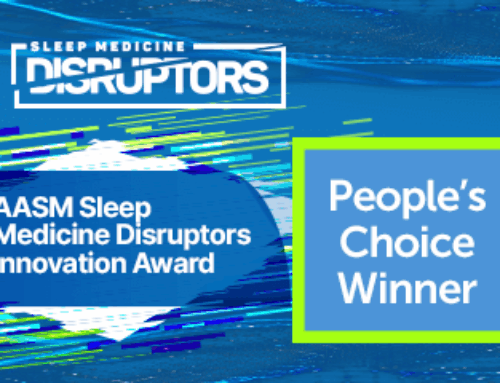The close of 2019 ended an eventful year for the field of sleep medicine that included FDA warnings and new device and drug approvals; growing interest in sleep care from CVS and Walgreens pharmacies; a new clinical practice guideline and updates to the AASM accreditation standards; and proposed changes to the Stark Law.
Here is a selection of some of the top sleep medicine headlines from the past year:
- FDA issues warnings for insomnia and restless legs syndrome drugs
In April the FDA issued a safety announcement and consumer update requiring the addition of a boxed warning to the prescribing information and the patient medication guides for the insomnia medications eszopiclone (Lunesta), zaleplon (Sonata), and zolpidem (Ambien, Ambien CR, Edluar, Intermezzo, Zolpimist). In December the FDA issued another safety alert warning that serious breathing difficulties may occur in patients with respiratory risk factors who are using gabapentin (Neurontin, Gralise, Horizant) or pregabalin (Lyrica, Lyrica CR), which are FDA-approved for a variety of conditions, including seizures, nerve pain, and restless legs syndrome (RLS).
- FDA clears several sleep-related devices and medications
In the second half of 2019, the FDA also cleared several devices and medications of relevance to sleep clinicians:
- CVS and Walgreens show growing interest in providing sleep care
CVS Health and Walgreens, the two larges pharmacies in the U.S., increased their presence in the field of sleep medicine in 2019. CVS Health revealed its new approach to sleep apnea diagnosis and treatment and partnered with Sleepio to increase patient access to insomnia treatment. (CVS also began partnering with UPS to transport and deliver medical supplies and retail products using drones.) Through a collaboration with Philips, Walgreens began offering sleep solutions and digital tools through its digital marketplace, “Find Care,” as part of its ongoing focus on chronic disease management.
- AASM releases new payer policy scorecards
The AASM Payer Policy Review Committee continued to review payer policies related to diagnostic testing for obstructive sleep apnea in adults, evaluating them and assigning a score based on alignment with the AASM’s clinical practice guideline recommendations. All guideline scorecards are available for review and download on the Payer Policy Scorecards page of the AASM website.
- AASM publishes new clinical practice guideline and updates accreditation standards
In February the AASM published a new clinical practice guideline providing guidance to clinicians on the use of positive airway pressure (PAP) therapy to treat obstructive sleep apnea in adults. The AASM also updated its Standards for Accreditation, effective July 1, 2019, to simplify requirements that have a limited bearing on the quality of a sleep facility or independent sleep practice.
- CMS proposes value-based exceptions to the Stark Law
In October CMS issue a proposed rule proposing exceptions to the physician self-referral law (i.e., the Stark Law) for certain value-based compensation arrangements. The AASM submitted comments advocating for a Stark Law exception for sleep physicians.
- AASM begins developing clinical registry and launches innovative fellowship training models
The AASM announced that it is creating the first qualified clinical data registry (QCDR) dedicated solely to sleep medicine and launched two innovative sleep medicine training pilot programs as part of the Advancing Innovation in Residency Education (AIRE) initiative.
- Editorial highlights disruption in sleep medicine
An editorial by AASM Past President Dr. Douglas Kirsch described how sleep medicine is primed for more disruption in the years ahead, which may promote patient-centered care.
- Boards announce more changes to the maintenance of certification program for physicians
Starting in 2020, the American Board of Internal Medicine (ABIM) will offer a two-year assessment option, called a Knowledge Check-In, as an alternative to the 10-year MOC exam in sleep medicine. ABIM also announced that it anticipates offering a longitudinal MOC assessment option for the first time in 2022 in as many specialties as possible. The American Board of Psychiatry and Neurology (ABPN) announced that ABPN diplomates currently certified in the subspecialty of sleep medicine now have the option to drop primary certification in psychiatry or neurology.
- CMS releases 2020 Medicare Physician Fee Schedule
On Nov. 1, 2019, the Centers for Medicare & Medicaid Services (CMS) released the 2020 Medicare Physician Fee Schedule Final Rule, summarizing proposed revisions to the Physician Fee Schedule.
Review the Weekly Insider archive, available to AASM members only, for more sleep medicine news and updates.





